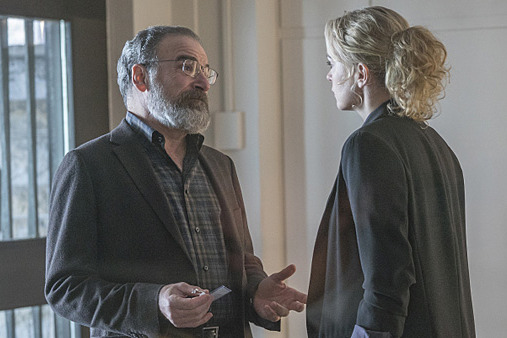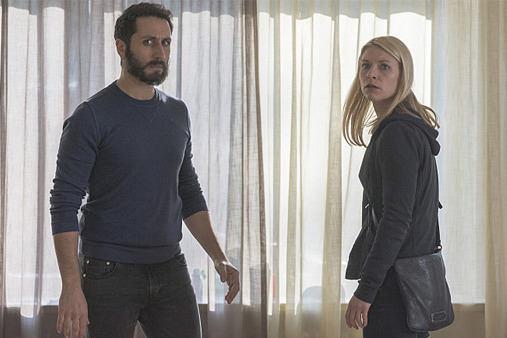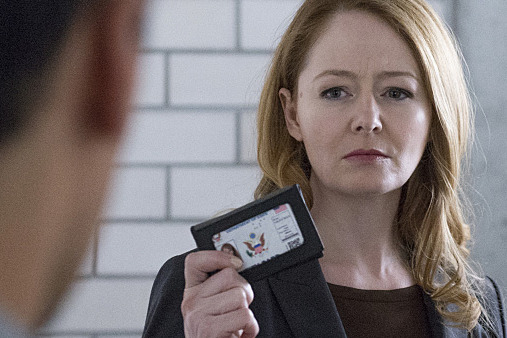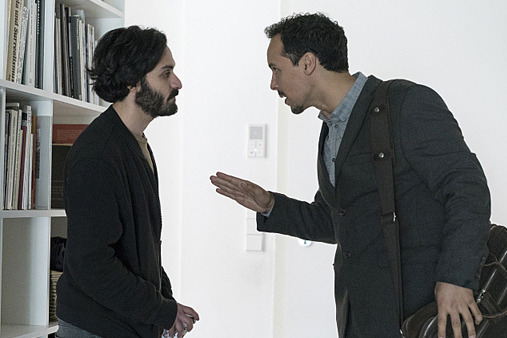
Metaphorically and often literally, Homeland wears a lot of wigs. Since Brody’s death, the series has adjusted for his absence by developing multiple personalities: Sometimes it’s a detective show, sometimes it’s a psychological melodrama, and sometimes it’s a full-blown spy thriller. Week to week, it’s impossible to predict which version we’ll be getting, but I think we can all agree it’s a real treat when Homeland goes big. Sure, it can be fun to spend an hour with Carrie ranting and raving about angels, but I’d rather see her jump onto train tracks and chase a terrorist into a dark tunnel. “Our Man in Damascus” is a gripping, excellent episode and further cements the rebirth of the series into an unofficial Bourne movie.

With only one episode left before the season’s end, “Our Man in Damascus” is less a standalone episode than an hour of increasingly fraught, tension-filled moments barreling toward a climax. We’re now long past setting the stakes and fretting about Carrie’s credibility. The terrorists are on the move, so our characters must make hard and fast decisions about what to do. Even the episode’s quietest moments were pregnant with dread: The opening sequence, in which Carrie and Saul deliberate on whether to risk Quinn’s life by medically rousing him from a coma, was jam-packed with conflicting emotions. They need his intel to possibly avert a large-scale attack on Berlin, but the doctor strenuously objects, essentially guaranteeing Quinn will die if they wake him. We understand why they’d decide to do it anyway — Quinn himself probably wouldn’t have objected — but we understand the horror on Carrie’s face even more when Quinn seizes and spits up chunky black ooze. This is not going to be easy for anyone.

If there’s a silver lining to Quinn’s awful state, it’s that Carrie eventually gets to the bottom of the terrorist plot. Though it would’ve been within her right to sit by Quinn’s bedside, she signals to Saul that she’d rather investigate the time gap between Quinn’s disappearance from her hideout and his capture by terrorists. In a truly inspired scene, she finds herself in the living room of the Hezbollah leader who’d basically spat in her face in the season premiere, and appeals to his tenuous empathy for innocent victims. Not even the most hardened, vengeance-seeking Hezbollah leaders can resist Carrie’s trembling chin. In short order, she’s tracked down the good Samaritan doctor who saved Quinn’s life, and she’s led into the apartment where one of the terrorists had been planning the train-station attack. (Note to terrorists: Maybe don’t leave behind countless journals detailing your plans and also cardboard models of your targets?)
Unfortunately, Carrie’s discovery of the time and target of the attack comes about an hour too late. By that time, Allison had already delivered a bogus tip-off that the attack would be at the airport. The German army has already been deployed to evacuate it, leaving Carrie to enter that possibly doomed train station alone.

And on that note: We need to talk about Allison. We already know she’s the best, most inspired new addition to this season. That’s a fact. But “Our Man in Damascus” somehow tops every Allison moment before it by giving her a pair of scenes that we folks in the business call “doozies.” In the bathroom, she listens on her headphones to further instructions from the Russians, and the shocked look on her face tipped us off that the new orders weren’t great. But then, her confrontation with the KGB woman proves that Allison’s still capable of having a conscience — she initially refuses her command to allow the terrorist attack to happen — until, of course, her life, liberty, and pursuit of happiness are directly threatened by doing the right thing. Miranda Otto plays the scene with so much ambiguity (and that death-glare at the Russian diplomat in the following scene!) that it’s unclear where she’ll land.
The minute Allison asks to borrow her minder’s gun, her decision is clear. In one of the most vivid, riveting scenes in Homeland history, she dutifully carries out her instructions, murders her minder, forces her terrorist-abetting suspect to divulge the bombing details, murders him, and then shoots herself to stage the scene like the aftermath of a stand-off. We see every moment as Allison works through her moves — every bit of regret, uncertainty, and resolve plays across Miranda Otto’s face. The way she caterwauls after shooting herself in the shoulder felt both pathetic and real, very much a sequel to the time she collapsed on the bathroom floor, plagued with guilt-ridden fear. A villain with vulnerabilities can be the scariest kind of villain. By episode’s end, she escapes from the hospital — possibly with help from another spy — and leaves us with the question that next week’s episode will presumably answer: Will Allison be brought to justice for all she’s done, or will Homeland recognize what an, um, asset they have and figure out how to include her in season six? My personal thirst for comeuppance usually knows no bounds, but after Miranda Otto’s weekly gift to viewers, it would be hard to be mad if the show keeps her around.

A significant element of “Our Man in Damascus” involves the terrorists themselves, from their hardened mastermind to the conscientious objector within their midst. Their leader is the most fearsome character named Bibi since the main woman in The Apple sang an ode to methamphetamines, but even he isn’t able to convince Qasim to fully handle out his grim duties. I love when Qasim asks the bomb-designing professor how his faith could allow him to harm innocents, and the professor replies that he is an atheist — he’s simply retaliating for Germany’s foreign policy. Like most people, I’ve grown comfortable with the idea that religious fundamentalists are crazy, so it’s deeply unsettling to be presented with a cold, calculated, ostensibly pragmatic murderer. It was heartening later, though, when Qasim finds himself unable to lock the train station gates after being confronted by face after innocent face. (The first person, notably, is a Muslim woman.) Again, while Homeland has little compunction about presenting cartoonish villains motivated by cartoonish ambitions, I’m glad we get a small moment of humanity from this would-be villain.
It’s barely worth mentioning Laura’s plotline, but fine: She’s steamed after German authorities arrest the man she’d promised to keep safe, so she goes rogue and appears on German television threatening to release all the CIA documents if she doesn’t get her way. She may be about the sanctity of the rule of law — though Laura seems to think breaking the law is okay when it involves whistleblowing — but her timing was kiiinda tacky. The point was moot anyway, though, because her man leaps out a window to his death between interrogations. I guess the world is about to find out just how boring CIA documents can be!

“Our Man in Damascus” brings together this season’s disparate elements in an elegant, riveting package. Though it wouldn’t be fair to say that we had to endure everything that lead to this point — after all, much of this season has been incredibly gripping — this episode feels rewarding to a degree I didn’t expect. A half-dozen incredible characters operate at peak performance, all building toward a genuinely troubling and terrifying conclusion. This is peak Homeland. Let’s jump onto the tracks and follow it into the dark.

